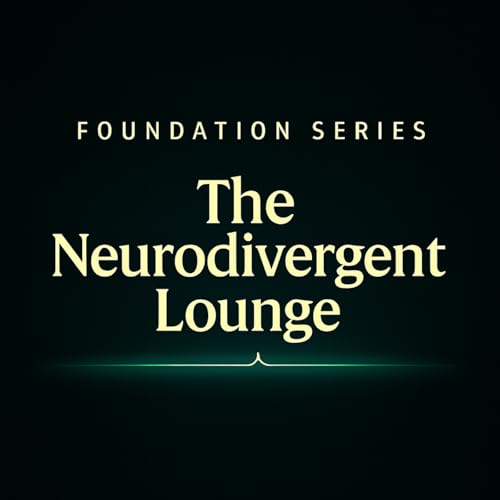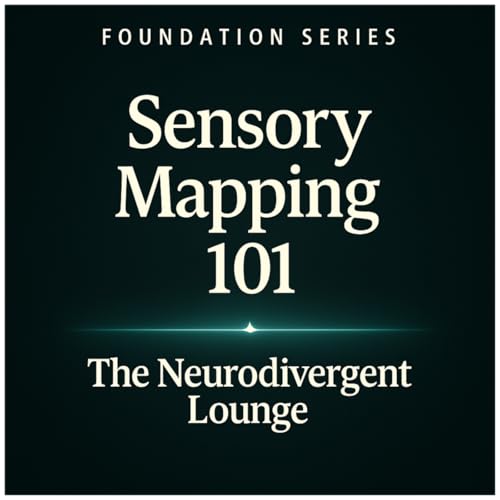
The Neurodivergent Lounge
Failed to add items
Add to basket failed.
Add to Wish List failed.
Remove from Wish List failed.
Follow podcast failed
Unfollow podcast failed
-
Narrated by:
-
By:
-
Marie Martin
About this listen
Welcome to The Neurodivergent Lounge
A comfortable space for uncomfortable growth.
After years of trying systems that didn’t fit my ADHD/autistic brain, I stopped forcing change—and started researching myself. This podcast shares that journey.
Each episode blends raw, honest conversation with real research at the intersection of neurodiversity and neuroplasticity. You’ll hear from neurodivergent voices, researchers, and evidence-based studies that finally make it all click.
No fluffy hacks. No pressure to mask. Just insight that helps you understand your beautifully different brain.
What makes this different?
The Lounge is built alongside SORA Ally—an AI companion that draws from academic research to help neurodivergent folks create success systems that actually work. Every episode here is grounded in the same research that powers SORA.
Whether you’re exploring how your brain works, or building your own neurodivergent toolkit, this podcast gives you the foundation to advocate with clarity and live with confidence.
Pull up a chair. Rewire your mind. You belong here.
Kasey Marie Martin-Hahn 2025-
 12 mins
12 minsFailed to add items
Sorry, we are unable to add the item because your shopping cart is already at capacity.Add to basket failed.
Please try again laterAdd to Wish List failed.
Please try again laterRemove from Wish List failed.
Please try again laterFollow podcast failed
Unfollow podcast failed
-
 12 mins
12 minsFailed to add items
Sorry, we are unable to add the item because your shopping cart is already at capacity.Add to basket failed.
Please try again laterAdd to Wish List failed.
Please try again laterRemove from Wish List failed.
Please try again laterFollow podcast failed
Unfollow podcast failed
-
 11 mins
11 minsFailed to add items
Sorry, we are unable to add the item because your shopping cart is already at capacity.Add to basket failed.
Please try again laterAdd to Wish List failed.
Please try again laterRemove from Wish List failed.
Please try again laterFollow podcast failed
Unfollow podcast failed


